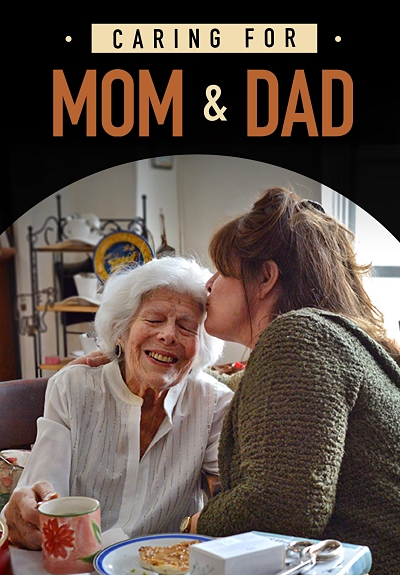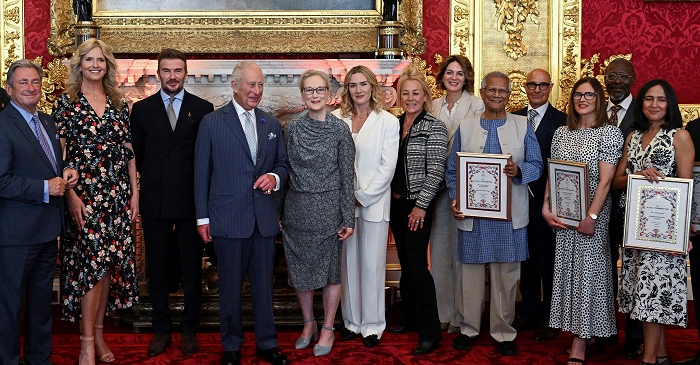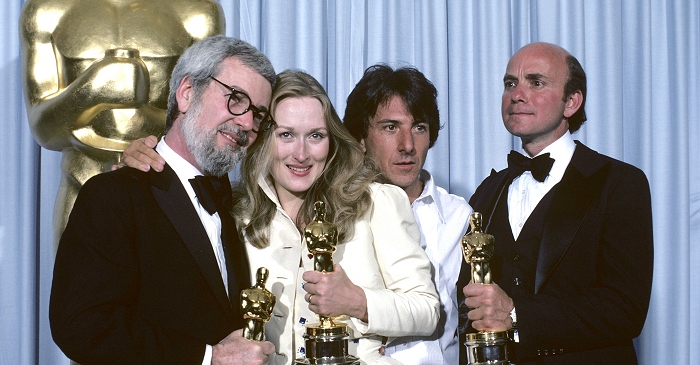|
Simply Streep is your premiere online resource on Meryl Streep's work on film, television and in the theatre - a career that has won her acclaim to be one of the world's greatest living actresses. Created in 1999, Simply Streep has built an extensive collection over the past 25 years to discover Miss Streep's body of work through thousands of photographs, articles and video clips. Enjoy your stay and check back soon.
|
Caring for Mom and Dad
May 07, 2015
· PBS Television
· 60 minutes
|


PBS could hardly deal with a more appropriate topic, given its older demographic tilt, than “Caring for Mom and Dad,” a one-hour special that explores the challenges faced by family members looking after aging parents — as well as the broader implications of 78 million baby boomers living longer, as the cohort’s eldest members approach their septuagenarian years. The only real downside to this discussion, narrated by Meryl Streep, is that it tilts too heavily toward anecdotes over experts, and probably should have been an hour longer. Even so, it’s a project that likely will harbor considerable relevance for a vast audience. Sparely told by writer-producer-director Larkin McPhee, the show features interviews with various adults who are looking after their elderly parents, often struggling to manage full-time jobs and absorbing the heavy financial burden of expenses that aren’t necessarily covered by Medicare. As author Jane Gross, who wrote about her experience, puts it, “There are many scenarios in which by the time this is over … Mom and Dad are broke, and so are you.” Those interviews also delve into the emotional toll the situation exacts — with the role-reversal of parents who, in essence, have become as dependent as young children. There’s also a question of the guilt experienced by some of the daughters and sons who aren’t fully up to the task, either because they’re unable or unwilling. Produced with funding from the AARP and Pfizer, “Caring for Mom and Dad” is so focused on those stories, sobering as they are, as to give relatively short shrift to experts who can address the wider nature of the crisis created by an aging population of people who, understandably, would prefer to live out their remaining days at home, as opposed to being warehoused in nursing facilities. Much of the macro data, in fact, are relegated to being flashed across the screen in script form, as opposed to receiving the more thorough examination they deserve.
By themselves, the stats are unsettling. Among them: that the number of working Americans serving as caregivers, most of them women, is rising; and that unless a parent is wealthy, entire estates are apt to be exhausted by the cost of longterm care. In addition, the escalating rate of Alzheimer’s disease and the extended periods of assistance it can require (four to eight years, on average) raise significant public-policy concerns that haven’t been adequately addressed. “Soon, the old will outnumber the young,” the narration notes near the outset, “and most will live longer than ever before.” Given the issue’s importance, this special, scheduled in advance of Mother’s Day, should really mark the beginning of a deeper conversation, one PBS is uniquely suited to conduct. Because as one of the caregivers puts it, when it comes to becoming a potential burden to somebody we love, barring the alternative, “We’re all gonna be there some day.”










